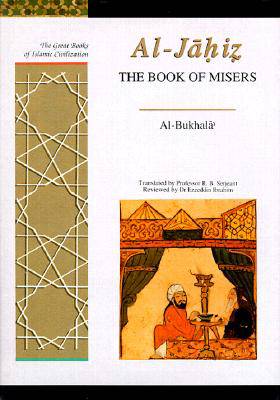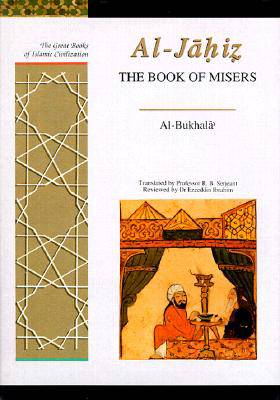
- Afhalen na 1 uur in een winkel met voorraad
- Gratis thuislevering in België vanaf € 30
- Ruim aanbod met 7 miljoen producten
- Afhalen na 1 uur in een winkel met voorraad
- Gratis thuislevering in België vanaf € 30
- Ruim aanbod met 7 miljoen producten
Zoeken
Omschrijving
Al-Jahiz (776-869) was one of the greatest exponents of Arabic prose of all time. His scholarship, the breadth of his interests, and his ability to express his ideas and arguments with vigour and humour were outstanding; "The Book of Misers" is his comical masterpiece, and one of the earliest works of fiction from the Islamic world. Generosity is regarded by Arab society as one of the principle virtues, and this satire on miserliness has a clear social purpose. With his acute powers of observation, light-hearted scepticism, his comic sense and satirical turn of mind, he ridicules both individuals and groups such as schoolmasters, singers or scribes. In addition, there is much incidental detail about traditional culture and conduct. It will appeal to the modern reader for its comical power, sometimes covert and sometimes straight-faced, which remains undiminished 1100 years after it was written . This translation by the late Professor R.B. Serjeant makes this work available to the English-speaking world. Professor Serjeant was one of the most eminent Arabic scholars in Britain, and since the 1950s he had used extracts from this work when teaching Arabic to his students, as he felt it gave great insight into traditional Arabic society.
Specificaties
Betrokkenen
- Auteur(s):
- Vertaler(s):
- Uitgeverij:
Inhoud
- Aantal bladzijden:
- 259
- Taal:
- Engels
- Reeks:
Eigenschappen
- Productcode (EAN):
- 9781873938195
- Verschijningsdatum:
- 26/01/1998
- Uitvoering:
- Hardcover
- Formaat:
- Genaaid
- Afmetingen:
- 177 mm x 246 mm
- Gewicht:
- 793 g

Alleen bij Standaard Boekhandel
+ 167 punten op je klantenkaart van Standaard Boekhandel
Beoordelingen
We publiceren alleen reviews die voldoen aan de voorwaarden voor reviews. Bekijk onze voorwaarden voor reviews.











